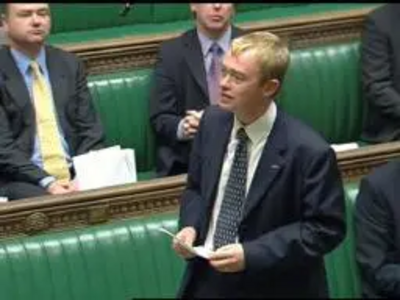Farron Calls For Affordable Housing In Rural Areas

Local MP Tim Farron yesterday spoke in a housing debate in parliament about the urgent need for a long-term plan for affordable housing, focusing on the challenges facing rural areas such as South Lakeland, in particular due to second homes. Tim called for a range of measures to alleviate this crisis.
Tim used the Lib Dem Opposition Day debate to call on the government to address the "crippling undersupply" of housing across the country with a "long-term plan". A shortage of housing nationally is leading to rising house prices, and Tim pointed out that "in my constituency in Cumbria, house prices are 10 times average local incomes." Tim praised SLDC's record on house-building, but pointed out that "rural areas such as mine in Cumbria face particular challenges in tackling the issue of affordable housing. If we consider the fact that some 8% of homes in rural areas are affordable, compared with 20% across the country, we will realise how difficult it is for children who grow up in rural communities to cling on, make a living there and raise their own families when they get older, and, indeed, for workers to live in the areas in which they work."
Tim called on the government to commit to building 300,000 homes per year, and asked the government to lift the borrowing cap to enable councils to borrow to build. It is thought that this scheme, backed by the Local Government Association, could lead to an extra 80,000 homes over four years.
Tim also argued that "the lack of affordable housing to rent is at crisis point, with 1.6 million households on the social housing waiting lists". He argued that this will worsen as the government presses ahead with its 'Right to Buy' plans for housing associations, pointing out that "only one in nine of the homes sold off since 2012 have managed to be replaced." Tim also noted that "one in three homes that have been bought under right to buy are now privately rented, so they do not help people to get on the housing ladder, they help other people to make a living from renting out property."
Tim also focused on the impact which high levels of second home ownership has on rural communities, arguing that "communities can be hollowed out as the result of a diminished resident population and the subsequent loss of schools, post offices, shops and public transport links." Tim suggested that "the increase in stamp duty on the purchase of second homes is good news, but mostly for the Treasury. When communities such as Hawkshead have something like 50% second home ownership, why cannot those funds be redirected to those communities, to support local services and to help provide new affordable homes?" Tim also repeated his call for the government to support Lib Dem plans to allow second homes to be charged double council tax "to tackle the immense damage that excessive second home ownership does to towns and villages in places such as the west country, Northumberland and Cumbria".
Tim's motion was defeated due to Conservative opposition.
Commenting on the debate, Tim said: "It is clear to everyone that the government must take radical action to address the housing crisis, yet it is not willing to do so. The government must work with councils and local communities to build more affordable homes, yet the Conservatives' main priority is to sell off social housing, leaving fewer homes for those on the waiting list. The evidence suggests that these homes won't be replaced, and will simply end up in the private rented sector.
"Many of our local communities have been badly hit by very high levels of second home ownership, and I have been calling on the government to allow these communities to keep the money raised from second home sales to compensate them for the impact on local services, as well as to be able to raise council tax on second homes. It is disappointing that the Conservatives voted against these plans."
